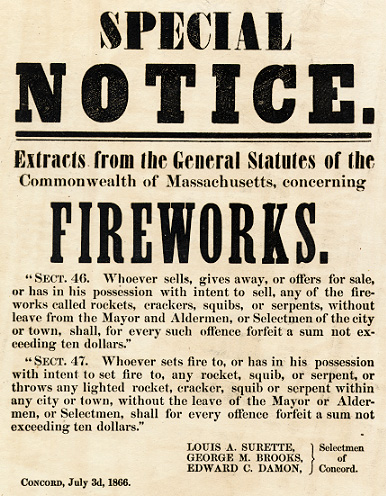

8. Edward Carver Damon
From his base in Westvale, Edward Carver Damon’s influence extended throughout the nineteenth-century Concord community. In addition to being the successful owner of Damon Mill, he was for thirty years a director of the Middlesex Institution for Savings, as well as the Concord National Bank, of which he became president. His civic commitments included working with William Munroe on the creation of the Concord Free Public Library, later serving on the library committee and as a benefactor. Among the town government positions he held were selectman (1866-1870), school committee member, and water commissioner. As water commissioner, he was among those responsible for creating a public water supply for West Concord. He belonged to the Concord Farmers’ Club, the Saturday Club, and in 1866 was invited to join the Social Circle. Both Edward and his wife Anne were an integral part of Concord’s social and cultural circles, attending Concord Lyceum and School of Philosophy lectures, and counting the Emersons and Alcotts among their friends and acquaintances.
Edward was born in Concord in July 1836 to Calvin Carver and Rebecca Poor Farnham Damon. His education and early training at the mill served him well when he stepped in to succeed his father. Edward ran the mill successfully, building and diversifying the business over time, particularly during the Civil War era when his father’s domett cloth was in demand for use by the U.S. Army. In spite of his success, he was recalled as a modest man who placed more emphasis on caring for his family, his employees, and his community than himself. He was quietly pious, personally teaching religion classes to members of the mill community and acting as superintendent of the Sunday school at the Trinitarian Congregational Church. Though he was often in fragile health, he worked tirelessly at the mill, providing handsomely for his family and changing the face of the community. For a neighborhood grew up around Damon Mill, including tenement housing for workers, a school, and a store: a cohesive community in itself.
Through his business acumen, extensive community involvement, and good will, Edward Damon was able to build a bridge socially between working-class Westvale and more affluent Concord Village. In his Social Circle memoir of Edward Damon, Henry F. Smith wrote:
“He was elected a member of the Social Circle in 1866, at the age of thirty, which is strong testimony of the regard in which he was held by the men of Concord, especially considering how far he lived from the other members of the Circle.”
This July, 1866 broadside regarding the sale and use of fireworks was issued by the Concord Board of Selectmen, of which Edward Carver Damon was then a member.